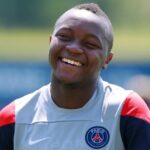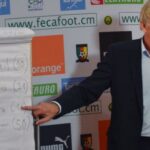This report captures a fascinating moment in Radamel Falcao’s career, when his future was clouded by injury recovery, third-party ownership, and speculation about a move to revive his form and reputation.
After joining AS Monaco in 2013 in a high-profile move, Falcao’s debut Ligue 1 season was derailed by a serious knee injury that not only sidelined him for much of the campaign but also cost him a place at the 2014 World Cup with Colombia. Despite his quality, questions remained about whether he could return to his world-class level.
Why AC Milan?
AC Milan, under new coach Pippo Inzaghi, were looking to rebuild after a period of decline. Silvio Berlusconi’s reported intent to make a “major transfer window” aligned with Milan’s historic approach of recruiting marquee names to regain status. Falcao, even recovering, fit the profile—a proven goal-scorer with international pedigree.
The Doyen Sports Factor
Falcao being largely owned by Doyen Sports, a third-party investment group, complicated any potential transfer. Doyen had financial interest in Falcao’s future, and their willingness to help cover salary costs or structure a favorable loan suggested they saw Milan as a valuable showcase for his return to form.
This type of arrangement, though increasingly controversial, was not uncommon at the time. FIFA would later move to ban third-party ownership, but in this window, it gave clubs like Milan a chance to take big risks without bearing the full financial burden.
Balotelli as a Counterweight
The idea of Mario Balotelli moving to Monaco as part of the deal added another layer of intrigue. Balotelli, also looking to rediscover consistency, might have appealed to Monaco’s desire for a charismatic forward who could bring headlines and goals.
What actually happened: Falcao didn’t end up at Milan but was instead loaned to Manchester United in the Premier League for the 2014–15 season. That move also failed to reignite his form, though he later found moderate success at Chelsea and eventually rebounded at AS Monaco before moving on to Galatasaray and Rayo Vallecano.
This episode underscores how complicated modern football transfers can be—especially when third-party ownership, injuries, and big reputations collide.












